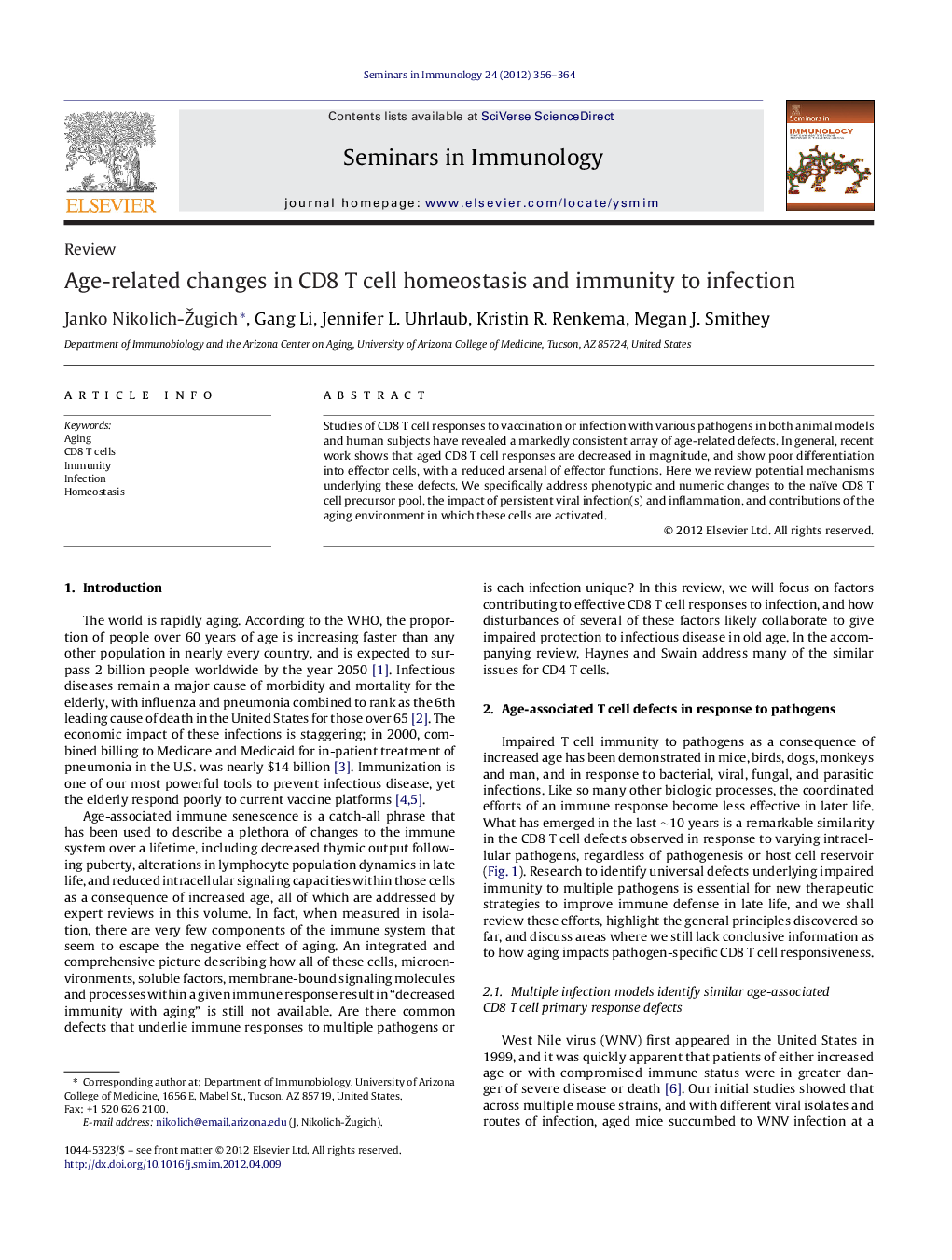| Article ID | Journal | Published Year | Pages | File Type |
|---|---|---|---|---|
| 3391433 | Seminars in Immunology | 2012 | 9 Pages |
Studies of CD8 T cell responses to vaccination or infection with various pathogens in both animal models and human subjects have revealed a markedly consistent array of age-related defects. In general, recent work shows that aged CD8 T cell responses are decreased in magnitude, and show poor differentiation into effector cells, with a reduced arsenal of effector functions. Here we review potential mechanisms underlying these defects. We specifically address phenotypic and numeric changes to the naïve CD8 T cell precursor pool, the impact of persistent viral infection(s) and inflammation, and contributions of the aging environment in which these cells are activated.
► CD8 T cell responses become impaired in both magnitude and function as a consequence of age. ► Aging dramatically impacts naïve CD8 T cell precursors, both numerically and phenotypically. ► Extrinsic factors may further contribute to a decline in CD8 T priming efficacy in late life.
